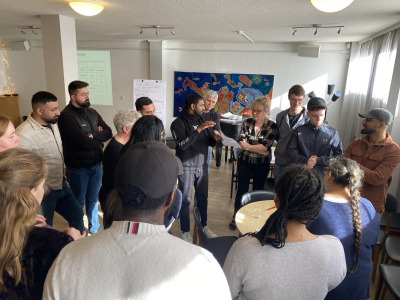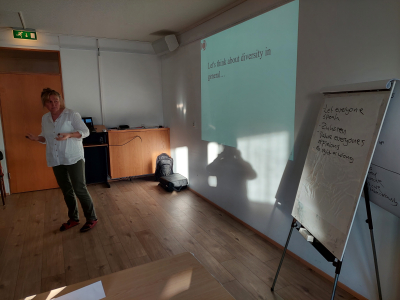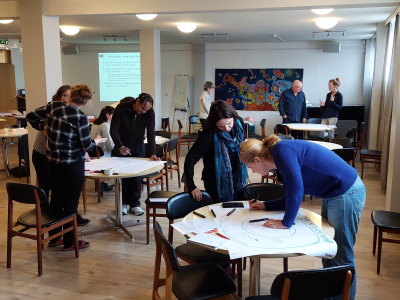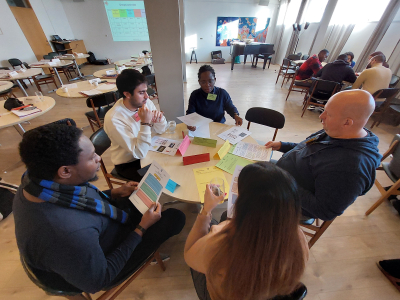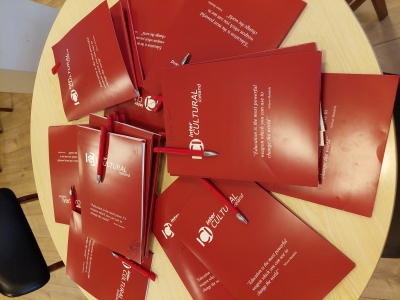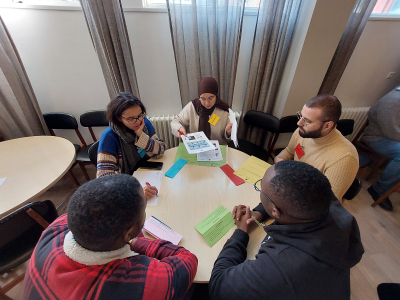Target group:
Target group are schools and other relevant educational or training organisations which want their teachers/trainers/staff members to be aware and sensitive in relation to diversity, stereotypes, prejudice, discrimination, racism and inclusion and to know how to deal with those issues at their workplace or in their classrooms. Additionally they will be schools and organisations who wish to develop sector leading practice in the areas outlined above and have clear aims and strategies to improve their student’s communication competences and intercultural competences by using well structured activities and creative cooperative learning methods.
Preparation: Participants will be expected to read the course program and pre released reading material.
Aims:
That learners of the educational organisation become more open minded, critical and active citizens
That learners of the educational organisation learn to live and work with others and learn to appreciate diversity in general
That teachers/trainers/participants become aware and sensitive about issues such as stereotypes, prejudice, discrimination, exclusion/inclusion, racism and everyday racism
That teachers/trainers/participants practice reactions against any kind of discrimination and racism
That teachers/trainers/participants learn how to teach and discuss these issues to different age groups
That teachers/trainers/participants learn how to create a trusting and safe learning environment
Methodology: The training programme is more practical than theoretical. The training program demands full participation. The main methods will be through cooperative work, various activities, discussions and practical training practises. The lectures will be short and take place between the activities. A key objective is: learning by doing. All participants should be able to discuss and present activities in English language.
Outcomes: The outcome of the program will be in the form of sensitized teachers/trainers/participants who can actively master simple cooperative learning methods which train their students social- and intercultural competences. They will have developed lesson plans or course modules in order to sensitize their learners on the above-mentioned issues.
Follow up: On return to their home locations participants will try out the different approaches with their students/pupils/participants and share their experience and material with other participants through e-mail or on other internet platform. The main trainer will also give feedback and counselling after the training session if asked for.
Course fee includes administration and organization fee, refreshments, course material and certificate of attendance.
The main trainer of the course is sociologist, teacher and teacher’s trainer Guðrún Pétursdóttir
Guðrún Pétursdóttir finished her master’s degree in sociology from the Freie Universität Berlin in year 1990. Besides sociology she also studied intercultural education at the Institut für interkulturelle Erziehung at the same university and later finished the teacher’s qualification at the University of Iceland. For the last 20 years Guðrún has worked in different fields connected with migration issues and teachers training and has since 2003 ran the intercultural centre InterCultural Iceland (www.ici.is). She taught courses at the Teachers University during the years 2003-2005 and at the pedagogical department of the University of Iceland from 2006-2009. She has run Grundtvig/Comenius/Erasmus+ In-service training courses for teachers and educators since 2004, developed cooperative learning methods and materials and she is the author of three books: Intercultural education (1999), Everyone can do something nobody can do everything; a practical handbook for teachers (2003) and Diverse Society Diverse Classrooms; Critical, Creative, Cooperative and Interculturally Competent Learners and Teachers Ready for the 21st Century (2018)
You can watch a short videos and photos from the course on our fb page: https://www.facebook.com/InterCultural-Iceland-263369640353211/
For any further information and a more detailed program, please contact us: ici@ici.is
